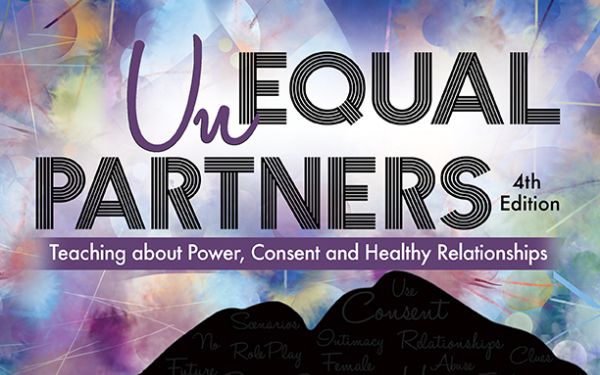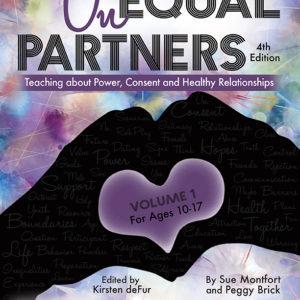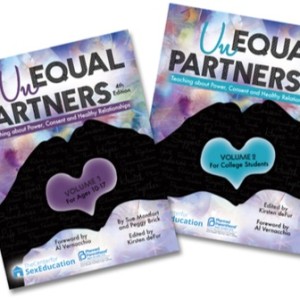
Another week, another story in which power disparities have been abused for personal gain. This time, news outlets are abuzz with the fact that Bill O’Reilly has, at long last, been forced out at Fox News because of numerous sexual harassment allegations. Tales of people in positions of power using that dynamic for sexual gain is nothing new. But where do these presumptions of privilege come from? How do the lessons people learn earlier in life teach them about what they can and cannot take from someone, or what they can and cannot expect (or even deserve) from the various relationships in their life?
My personal history is rife with unequal relationships, romantic and otherwise, starting from an early age. I’ve always been drawn to those who would take my passivity for granted. I’ve always been the one who would keep her lips zipped rather than rocking the boat.
Which is why I’m really digging the following lesson from the fourth edition of Unequal Partners:
WHAT MAKES A RELATIONSHIP HEALTHY?
By Melissa Keyes DiGioia, CSE and Kirsten deFur, MPH
Objectives
By the end of this lesson, participants will be able to:
1. Identify components of a healthy relationship, particularly honesty, equality, respect and responsibility.
2. Distinguish between behaviors that are healthy and unhealthy.
Audience
Middle adolescents (ages 14-17)
Rationale
Relationships are an integral part of human existence, however in many cases young people have not had an opportunity to learn about the components of healthy relationships and how to tell the difference between healthy and unhealthy behaviors. In addition, many teens have not had positive models of healthy relationships in their lives. This lesson explores the components of a healthy relationship, examines the difference between healthy and unhealthy relationships, and provides an opportunity to practice making that distinction.
As the lesson goes on, teens are given the opportunity to use music and even a card game to explore the components of a healthy relationship.
This lesson gives teens the chance to distinguish between healthy and unhealthy relationships, adding on to what they may already be learning from the relationships that are modeled to them in their day-to-day lives.
Stay tunes for more in our 500 Lessons in 500 Days series…



